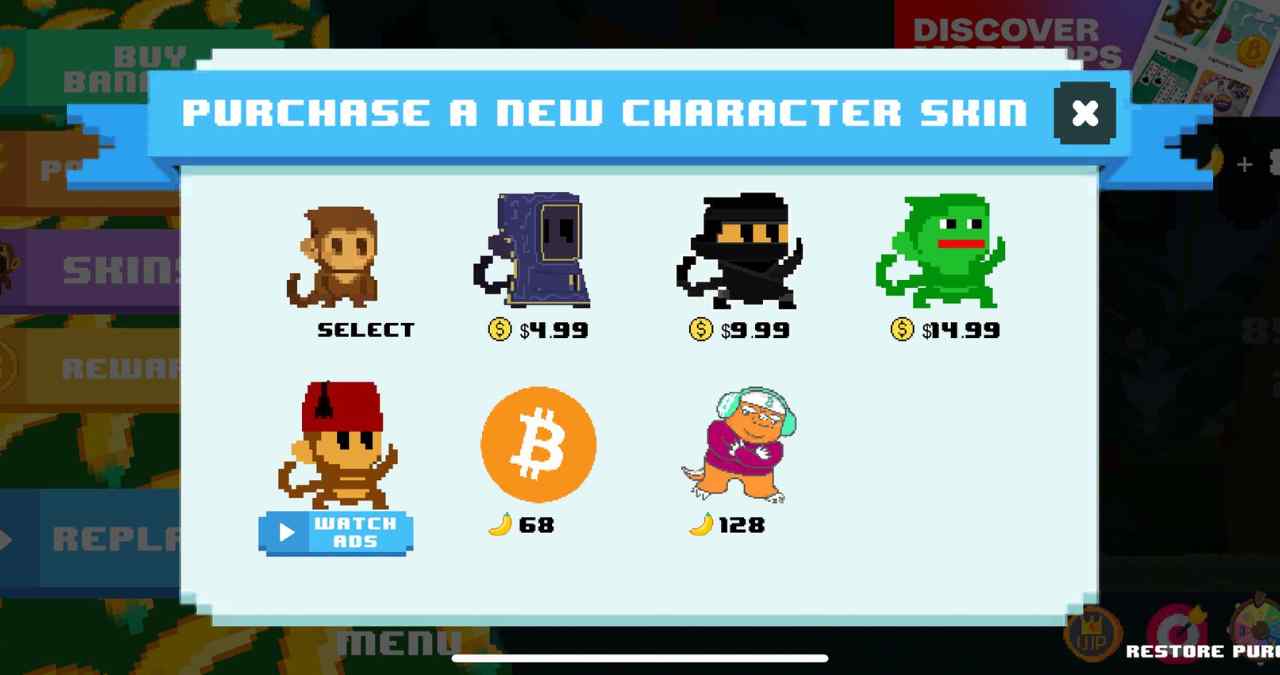In a move that slipped under the radar for most, Sarutobi a game that first launched nearly a decade ago has made a small but notable comeback. It’s now the first mobile game approved by Apple to integrate Bitcoin purchases through in-app items, using the Lightning Network.
That doesn’t mean you’re buying crypto in the App Store. Instead, players earn small Bitcoin rewards through gameplay and can now buy virtual items that help boost those earnings, all while staying compliant with Apple’s tight restrictions.
A game that’s been quietly ahead of its time
Originally released in 2014, Sarutobi started as a simple endless flyer where a monkey swings through the air collecting coins. But it stood out by letting players earn tiny fractions of Bitcoin, long before play-to-earn became a buzzword.
The visual style is intentionally retro pixelated graphics, lo-fi effects, and an old-school arcade vibe. It’s light and accessible, but always had that hook: you were playing for actual sats.
That core mechanic hasn’t changed much, but the infrastructure around it has. Now, Bitcoin rewards are handled via the Lightning Network, making transactions faster and cheaper. And with Apple approving the in-app purchases linked to gameplay, it legitimizes a model that was once seen as too risky or fringe.
Bitcoin rewards without breaking the rules
The way it works is subtle. You’re not purchasing Bitcoin directly through Apple’s system. Instead, you’re buying game items boosters, upgrades that improve your in-game performance. If you get good enough, the game pays you out in Bitcoin, sent externally via Lightning.
This approach threads a very fine needle: Apple still prohibits crypto wallets or exchanges inside iOS games, but Sarutobi avoids that by separating the reward system from the App Store’s purchase flow. It’s not new tech, but it is a new way of packaging it for mobile.
That makes it a quiet milestone. Other blockchain-based games have struggled with Apple’s policies, especially around NFT sales or token use. Sarutobi keeps it all off-chain in-app, and only invokes Lightning once a reward is claimed.
A one-off or a new pattern?
What makes this interesting isn’t just that Sarutobi did it, but how it did it. There’s no token sale, no ecosystem pitch, no in-app wallet. It’s a minimalist game with a lean Bitcoin utility and Apple let it through.
It might signal a subtle change in how crypto-based rewards can be structured on mobile. Instead of building entire economies into a game, developers may need to work around the edges. Keep the crypto outside the store, keep the gameplay clean.
That’s not a revolution, but it’s a viable path. And for a game that’s been around since 2014, staying relevant this long might be the biggest win of all.
Web3 Analyst & Play Blockchain Games Guide
CryptoKit breaks down Web3 gaming like it’s second nature. From tokenomics to airdrop strategies, she turns blockchain chaos into clear, actionable advice for players who want to win more than XP.




